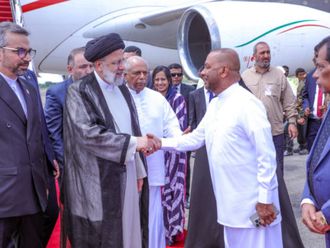Cairo: The Egyptian press has been visibly bolder since the ouster of Mubarak. Egypt ranked fourth for press freedoms in the Middle East and North Africa in a 2012 report by Freedom House, an independent organisation based in the US.
That is up from sixth regionally in 2011. Egypt’s uprising was about freedom, dignity, and justice for people who lived under a repressive regime for almost three decades.
But journalists and analysts say that now there is potential for greater restrictions on speech than under Mubarak. Lina Attalah, chief editor of Egypt Independent, says attempts to stifle criticism of Egypt’s new leader have already begun.
“Intimidation [is] happening already on the ground against journalists, manifested in summoning of journalists by the public prosecutor on allegations of insulting the president, which has been the case with several journalists so far.”
As for the constitution? “We see a lot of limitations and potential limitations to media freedoms if the constitution is passed, and our strike is a response to those things,” Attalah says.
Attalah says even state-owned media, long a propaganda tool, had grown feistier. With independent press, “there is a way higher ceiling of liberties, but also a legacy of censorship that is a by-product of state-sponsored limitation to the media, and this is what you call a form of informal censorship,” she says. Even if the state does not directly own a channel or a newspaper, it can impose control.












